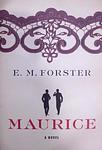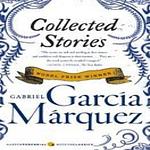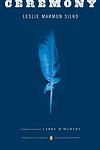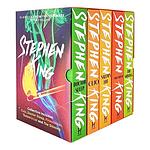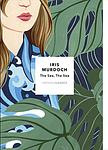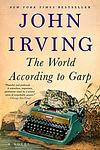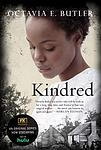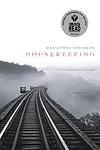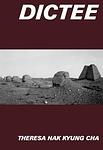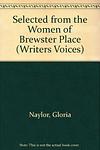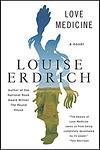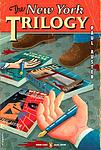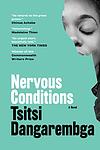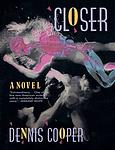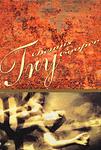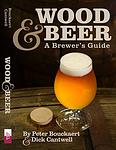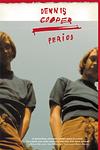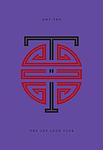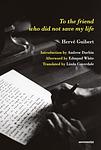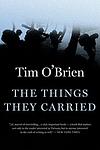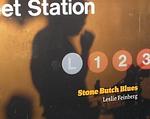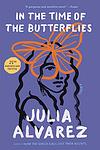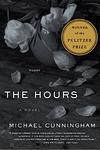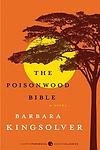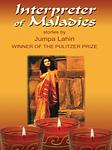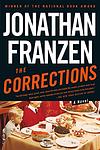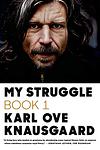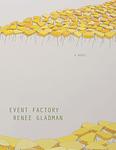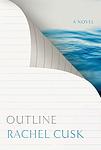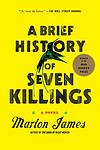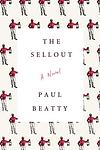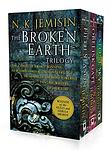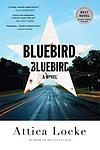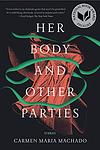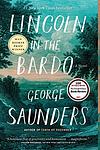200 Books That Shaped 200 Years of Literature
This is one of the 305 lists we use to generate our main The Greatest Books list.
-
Maurice by E. M. Forster
"Maurice" is a novel that explores the emotional and societal challenges faced by its titular character, Maurice Hall, in early 20th-century England. The story delves into Maurice's journey of self-discovery, focusing on his struggles with his sexual identity in a time when homosexuality was socially unacceptable and legally condemned. Throughout the novel, Maurice experiences confusion and isolation but ultimately seeks a life of authenticity and love, which challenges the rigid norms of his society. The narrative addresses themes of desire, societal expectation, and the pursuit of happiness, culminating in a controversial yet hopeful resolution.
The 2942nd Greatest Book of All Time -
The Complete Stories of Flannery O'Connor by Flannery O'Connor
This comprehensive collection of short stories showcases the author's exploration of the human condition, particularly in the American South. The stories, known for their dark humor, religious themes, and grotesque characters, delve into the complexities of morality, ethics, and the struggle between good and evil. The author's unique blend of Southern Gothic style and religious allegory creates a vivid portrait of a society grappling with its own contradictions and shortcomings.
The 177th Greatest Book of All Time -
Invisible Cities by Italo Calvino
In this unique novel, a Venetian traveler describes 55 different cities to the Mongol emperor, each city more fantastical and surreal than the last. The cities are divided into categories such as "Cities and Memory," "Cities and Desire," "Cities and Signs," etc. As the traveler continues to describe these cities, it becomes clear that they are all actually the same city, Venice, seen from different perspectives and points in time. The novel explores themes of memory, perception, and the nature of human experience.
The 293rd Greatest Book of All Time -
The Summer Book by Tove Jansson
This book tells the story of an elderly artist and her six-year-old granddaughter as they spend a summer together on a tiny island in the Gulf of Finland. Their interactions, conversations, and explorations of the natural world around them form a delicate and deeply touching portrayal of the bond between generations, the beauty of the surrounding landscape, and the quiet, introspective moments that define our lives. The narrative is a series of vignettes, each a meditation on life, death, nature, and the human condition.
The 1127th Greatest Book of All Time -
Mumbo Jumbo by Ishmael Reed
"Mumbo Jumbo" is a satirical and unconventional novel that explores the cultural and political landscape of 1920s America. The narrative centers around an ancient virus known as "Jes Grew" which is spreading rapidly, causing people to dance, feel joy and lose their inhibitions. The protagonist, an African-American detective, is tasked with finding the text that supposedly contains the cure for this "disease". The book uses this premise to critique Western civilization and its attempts to suppress African and other non-European cultures.
The 752nd Greatest Book of All Time -
Collected Stories by Gabriel García Márquez
"Collected Stories" brings together a diverse array of tales that blend the magical with the mundane in a uniquely evocative manner. The stories traverse a variety of settings and characters, each infused with the author's rich imagination and lyrical prose. Themes of love, violence, and destiny are explored through narratives that often blur the lines between reality and fantasy, capturing the complexities of human experience and emotion. This collection showcases the author's ability to illuminate the extraordinary within the ordinary, making the familiar seem fantastical and the fantastical accessible.
The 5064th Greatest Book of All Time -
Dhalgren by Samuel R. Delany
The novel follows the journey of a poet with amnesia, known only as the Kid, through a dystopian city named Bellona. The city has been isolated from the rest of the world following a catastrophic event of unknown origin. The Kid navigates through a society where time, identity, and reality are all fluid, engaging with various groups of outcasts and explorers. The narrative is marked by its experimental style, incorporating elements of science fiction, surrealism, and metafiction.
The 817th Greatest Book of All Time -
Woman at Point Zero by Nawal El Saadawi
"Woman at Point Zero" is a powerful novel about a woman named Firdaus who, after a life filled with hardships and abuse, finds herself on death row in an Egyptian prison. The narrative explores her life story, from her childhood of poverty and genital mutilation to her experiences with domestic violence, prostitution, and finally murder. Through her journey, the book offers a profound critique of patriarchal society and the systemic oppression of women.
The 704th Greatest Book of All Time -
Ceremony by Leslie Marmon Silko
"Ceremony" is a novel that explores the life of Tayo, a World War II veteran of mixed Laguna Pueblo and white heritage. After returning from the war, Tayo struggles with post-traumatic stress disorder and alcoholism. The novel charts his journey towards healing, which involves embracing his Native American heritage and the traditional ceremonies of his people. Along the way, he must confront racism, poverty, and the destructive forces of Western culture, ultimately finding solace and redemption in the ancient rituals and wisdom of his ancestors.
The 739th Greatest Book of All Time -
The Hour of the Star by Clarice Lispector
"The Hour of the Star" is a poignant narrative that explores the life of Macabéa, a poor, unattractive, and naive typist living in the slums of Rio de Janeiro. The story is narrated by Rodrigo S.M., a sophisticated writer who struggles with how to accurately portray Macabéa's simple existence and her tragic fate. The novel delves into themes of identity, poverty, and the human condition, presenting a stark contrast between the lives of the rich and the poor, the educated and the ignorant, and the beautiful and the plain.
The 502nd Greatest Book of All Time -
The Shining by Stephen King
A recovering alcoholic accepts a job as a winter caretaker at a remote Colorado hotel, hoping the isolation will help him reconnect with his wife and young son, and work on his writing. However, the hotel has a dark history and a powerful malevolent presence that influences him into violence, while his psychic son sees horrific forebodings from both past and future. As the winter weather leaves them snowbound, the father's sanity deteriorates, leading to a terrifying climax.
The 178th Greatest Book of All Time -
The Sea, The Sea by Iris Murdoch
A successful and renowned London theatre director retires to a secluded house by the sea in an attempt to write his memoirs. His peaceful solitude is disrupted when he encounters his first love from decades ago and becomes obsessed with winning her back. As he spirals into self-delusion and madness, the narrative explores themes of love, obsession, and the subjective nature of reality.
The 287th Greatest Book of All Time -
The Stories of John Cheever by John Cheever
This collection of short stories provides an intimate look into the lives of individuals living in the American suburbs during the mid-20th century. The narratives often center around themes of love, loss, and the pursuit of the American dream, painting a vivid picture of the human condition. The characters are typically middle-class individuals dealing with personal crises, existential dread, and the often harsh realities of everyday life. The stories are renowned for their ability to capture the essence of post-war America, with all of its beauty, despair, and complexity.
The 291st Greatest Book of All Time -
The World According to Garp by John Irving
The novel follows the life of T.S. Garp, the illegitimate son of a feminist mother, who becomes a writer. Garp's life is filled with unusual experiences and characters, from his unconventional conception to his untimely death. He navigates through a world filled with sexual violence, infidelity, and gender issues, and his life story is punctuated by his own literary creations. His mother's feminist ideals and the tragic events of his life deeply influence his writing and worldview.
The 221st Greatest Book of All Time -
Kindred by Octavia E. Butler
"Kindred" is a gripping and thought-provoking novel that follows the life of Dana, a young African American woman living in the 1970s. Suddenly, she finds herself inexplicably transported back in time to the early 19th century, where she becomes entangled in the lives of her ancestors, who are enslaved on a plantation. As Dana navigates the brutal realities of slavery, she grapples with her own identity, the complexities of race, and the enduring legacy of the past. With its powerful storytelling and exploration of the connections between past and present, "Kindred" is a profound examination of history, race, and the enduring resilience of the human spirit.
The 464th Greatest Book of All Time -
Housekeeping by Marilynne Robinson
The novel explores the life of two sisters, Ruth and Lucille, who are raised by a series of relatives in a small, secluded town in Idaho after their mother's suicide. The girls' lives are profoundly affected by the eccentric and transient lifestyle of their aunt Sylvie, who becomes their guardian. The narrative delves deeply into themes of family, identity, womanhood, and the impermanence of life, ultimately leading to a divide between the sisters as they choose different paths in life.
The 215th Greatest Book of All Time -
The Name of the Rose by Umberto Eco
Set in a wealthy Italian monastery in the 14th century, the novel follows a Franciscan friar and his young apprentice as they investigate a series of mysterious deaths within the monastery. As they navigate the labyrinthine library and decipher cryptic manuscripts, they uncover a complex plot involving forbidden books, secret societies, and the Inquisition. The novel is a blend of historical fiction, mystery, and philosophical exploration, delving into themes of truth, knowledge, and the power of the written word.
The 108th Greatest Book of All Time -
Midnight's Children by Salman Rushdie
The novel tells the story of Saleem Sinai, who was born at the exact moment when India gained its independence. As a result, he shares a mystical connection with other children born at the same time, all of whom possess unique, magical abilities. As Saleem grows up, his life mirrors the political and cultural changes happening in his country, from the partition of India and Pakistan, to the Bangladesh War of Independence. The story is a blend of historical fiction and magical realism, exploring themes of identity, fate, and the power of storytelling.
The 38th Greatest Book of All Time -
Obasan by Joy Kogawa
The book is a semi-autobiographical novel that tells the story of a Japanese-Canadian woman named Naomi, who reflects on her experiences during World War II. As a child, Naomi was forced into internment along with thousands of other Japanese-Canadians, following the bombing of Pearl Harbor. The narrative explores the themes of racism, identity, silence, and the power of memory, as Naomi grapples with the trauma of her past and the impact of her cultural heritage on her present life.
The 841st Greatest Book of All Time -
Concrete by Thomas Bernhard
The book is a darkly introspective narrative that delves into the mind of a reclusive, obsessive intellectual who is struggling to complete his scholarly work on the composer Mendelssohn. As he grapples with his own ailments and the perceived mediocrity of his surroundings, the protagonist's stream-of-consciousness monologue reveals his deep-seated anxieties, self-loathing, and profound isolation. The narrative is a relentless examination of the protagonist's psyche, showcasing his critical view of society and his own personal relationships, which are fraught with tension and dysfunction. Through this, the novel explores themes of artistic creation, intellectual elitism, and the suffocating nature of expectations and familial obligations.
The 1733rd Greatest Book of All Time -
Dictee by Theresa Hak Kyung Cha
"Dictee" is a groundbreaking work that defies traditional genre classification, blending poetry, prose, and visual elements to explore themes of identity, displacement, and history. The book is structured around the lives of several women connected by their struggles with cultural and personal identity, including the Greek muse Clio, Joan of Arc, and the author's own mother. Through a fragmented and nonlinear narrative, the work delves into the complexities of language and memory, particularly focusing on the experiences of Korean immigrants and the impact of colonialism. The innovative use of multiple languages and formats challenges the reader to engage with the text on multiple levels, making it a profound meditation on voice, empowerment, and reclaiming one's history.
The 3424th Greatest Book of All Time -
The Book of Disquiet by Fernando Pessoa
"The Book of Disquiet" is a posthumously published collection of thoughts and musings of a solitary dreamer, who is a Lisbon-based bookkeeper. The book delves into the mind of a man who is discontented with his mundane life and finds solace in dreaming and writing. The narrative is a profound reflection on life, solitude, and the nature of humanity, filled with philosophical insights and poetic language. The protagonist's introspective journey and his struggles with existential despair make it a seminal work in the genre of literary modernism.
The 482nd Greatest Book of All Time -
The House of the Spirits by Isabel Allende
"The House of the Spirits" is a multi-generational saga that explores the lives of the Trueba family, set against the backdrop of political upheaval in an unnamed Latin American country. The narrative is driven by the family's strong and magical women, including clairvoyant Clara and her granddaughter Alba. The story spans over three generations, weaving together personal, social, and political threads, and is rich in elements of magical realism. The novel explores themes of love, violence, social class, and the struggle for power.
The 167th Greatest Book of All Time -
The Women of Brewster Place by Gloria Naylor
The book is a poignant narrative that weaves together the lives of seven African American women living in a dilapidated urban housing development. Through a series of interconnected stories, it explores the struggles, hopes, and bonds of these women as they confront issues of racism, poverty, and sexism. The narrative delves into each woman's personal journey, revealing the resilience and solidarity that emerge within this close-knit community as they navigate the challenges of life in an environment that seems designed to suppress their voices and dreams.
The 1138th Greatest Book of All Time -
Cathedral by Raymond Carver
"Cathedral" is a collection of twelve short stories that explore the complexities of human relationships and the struggles of everyday life. The characters, often middle-class Americans, grapple with loss, isolation, and the inability to communicate effectively. The title story involves a man who gains insight into his own life when he helps a blind man envision a cathedral. Through these tales, the author highlights the profound moments in ordinary lives, showing the beauty and tragedy in the mundane.
The 882nd Greatest Book of All Time -
The House on Mango Street by Sandra Cisneros
The book is a collection of interconnected vignettes that detail the experiences of a Latina girl growing up in the Hispanic quarter of Chicago. It explores her struggles with her identity, her desire for a better life, and her experiences with poverty and gender roles. The protagonist's observations and experiences weave a vivid picture of life in a Latinx community, and her dreams of a better future give the narrative a sense of hope and resilience.
The 666th Greatest Book of All Time -
Love Medicine by Louise Erdrich
"Love Medicine" is a novel that explores the lives of several generations of a Native American family living on a reservation in North Dakota. The narrative is presented through a series of interconnected stories, each told from the perspective of different family members, and spans over 60 years, from 1934 to 1999. The book explores themes of love, family, identity, and the struggle between tradition and modernity. It provides a deep and poignant look into the complexities of Native American life and culture, and the challenges faced by the community.
The 505th Greatest Book of All Time -
Neuromancer by William Gibson
In this groundbreaking cyberpunk novel, a washed-up computer hacker is hired by a mysterious employer to pull off the ultimate hack. As he navigates a dystopian future filled with artificial intelligence, corporate espionage, and virtual reality, he must confront his own past and the dark realities of the digital world. The narrative explores themes of technology, identity, and consciousness, pushing the boundaries of science fiction literature.
The 252nd Greatest Book of All Time -
Nights At The Circus by Angela Carter
"Nights at the Circus" is a fantastical tale set in the late 19th century, centering around a trapeze artist who claims to be a swan princess with wings. A journalist is intrigued by her story and joins the circus to uncover the truth. As the troupe travels from London to Siberia, the journalist becomes increasingly enchanted by the strange world of circus performers and his relationship with the trapeze artist deepens. The book explores themes of love, freedom, and the blurred lines between reality and illusion.
The 389th Greatest Book of All Time -
The Lover by Marguerite Duras
"The Lover" is a poignant exploration of forbidden love, power dynamics, and colonialism. Set in 1930s French Indochina, it tells the story of a tumultuous and passionate affair between a 15-year-old French girl and her wealthy, older Chinese lover. The narrative delves into the complexities of their relationship, the societal norms they defy, and the inevitable heartbreak that follows. The protagonist's struggle with her family's poverty and her mother's mental instability further complicates the story, making it a compelling exploration of love, desire, and societal constraints.
The 299th Greatest Book of All Time -
The Unbearable Lightness of Being by Milan Kundera
Set against the backdrop of the Prague Spring period of Czechoslovak history, the novel explores the philosophical concept of Nietzsche's eternal return through the intertwined lives of four characters: a womanizing surgeon, his intellectual wife, his naïve mistress, and her stoic lover. The narrative delves into their personal struggles with lightness and heaviness, freedom and fate, love and betrayal, and the complexities of human relationships, all while offering a profound meditation on the nature of existence and the paradoxes of life.
The 114th Greatest Book of All Time -
Blood Meridian by Cormac McCarthy
Set in the mid-19th century, this novel follows a violent teenager known as "the Kid" as he joins a group of Indian-hunters led by the enigmatic and brutal Judge Holden. The narrative is a gruesome depiction of the lawless American West, filled with philosophical musings, vivid descriptions of the harsh landscape, and brutal, relentless violence. The story explores themes of human nature, morality, and the inherent chaos and brutality of life.
The 172nd Greatest Book of All Time -
The Handmaid's Tale by Margaret Atwood
Set in a dystopian future, this novel presents a society where women are stripped of their rights and are classified into various roles based on their fertility and societal status. The protagonist is a handmaid, a class of women used solely for their reproductive capabilities by the ruling class. The story is a chilling exploration of the extreme end of misogyny, where women are reduced to their biological functions, and a critique of religious fundamentalism.
The 70th Greatest Book of All Time -
The New York Trilogy by Paul Auster
"The New York Trilogy" is a collection of three detective stories that explore the nature of identity and the search for meaning. The stories are set in New York City and feature various characters, including a detective, a writer, and a professor, who are all engaged in their own personal quests. These quests often involve elements of mystery, existentialism, and introspection, and the stories are interconnected in various ways, creating a complex and thought-provoking narrative.
The 609th Greatest Book of All Time -
Bad Behavior: Stories by Mary Gaitskill
"Bad Behavior: Stories" is a collection of short stories that delve into the darker, often unexplored aspects of human relationships and behavior. The narrative navigates through the complex world of love, lust, power, and obsession, focusing on characters who are often marginalized or misunderstood. The stories provide a raw, unfiltered view of human nature, exploring themes of sexual deviance, emotional vulnerability, and societal norms.
The 1882nd Greatest Book of All Time -
Nervous Conditions by Tsitsi Dangarembga
"Nervous Conditions" is a semi-autobiographical novel set in colonial Rhodesia in the 1960s. The story follows a young girl from a poor family who gets the opportunity to receive an education after her brother's death. Despite the struggles she faces - including culture shock, racism, and the inherent sexism in both her native and adopted cultures - she perseveres and manages to succeed. The novel explores themes of race, colonialism, and gender through the lens of a young African woman's coming-of-age story.
The 663rd Greatest Book of All Time -
Closer by Dennis Cooper
"Closer" is a provocative and unsettling novel that delves into the lives of a group of teenagers in Los Angeles who are navigating a world filled with nihilism and desensitization. The narrative centers around George Miles, a vulnerable and impressionable young man whose emotional detachment and search for meaning become the focal point around which other characters orbit. Through a series of fragmented and often disturbing interactions, the novel explores themes of obsession, love, and the extremes to which alienation and the quest for connection can drive human behavior. The book is noted for its stark, minimalist style and its unflinching approach to controversial subject matter.
The 4367th Greatest Book of All Time -
Frisk by Dennis Cooper
The novel explores the darker side of human desires through the eyes of its protagonist, who delves into his disturbing fantasies of violence and sexual aggression. As he recounts his experiences and fantasies in letters to a friend, the narrative blurs the lines between reality and imagination, challenging the reader's perceptions of morality and the limits of human behavior. Set against a backdrop of underground scenes, the book is a provocative exploration of obsession, the nature of evil, and the allure of transgression.
The 4545th Greatest Book of All Time -
Try by Dennis Cooper
The book centers on the turbulent life of a teenage boy named Ziggy, who is caught in a web of sexual exploration and emotional neglect. After being adopted by a couple with a predilection for fostering troubled youths, Ziggy's world becomes increasingly complex and dark. He forms a bond with his adopted brother, who has his own traumatic past. Together, they navigate a landscape filled with drugs, pornography, and the search for identity and connection. The narrative delves deeply into themes of desire, the longing for affection, and the impact of exploitation on young lives, presenting a stark and sometimes disturbing portrait of adolescence.
The 4848th Greatest Book of All Time -
Guide by Dennis Cooper
"Guide" is a provocative and unsettling novel that delves into the darker aspects of human desire and the underground culture of Los Angeles. The narrative follows a young man named Larry, who navigates through a series of intense and often disturbing encounters with various people in his life, including friends and strangers. The book explores themes of obsession, violence, and the search for identity, all set against the backdrop of a gritty urban landscape. With its stark, minimalist prose and shocking plot twists, the novel offers a raw and unflinching look at the complexities of human relationships and the quest for meaning in a seemingly indifferent world.
The 4848th Greatest Book of All Time -
Period by Dennis Cooper
"Period" is the final installment in a five-part series that delves into the dark and often disturbing experiences of a group of teenagers. The narrative is fragmented and experimental, exploring themes of obsession, violence, and desire through a disjointed and surreal lens. The protagonist, along with his friends, navigates a chaotic world where reality and fantasy blur, leading to a climax that is both shocking and ambiguous. The novel challenges traditional storytelling with its unique structure and provocative content, leaving a lasting impact on the reader.
The 4848th Greatest Book of All Time -
The Joy Luck Club by Amy Tan
This novel explores the complex relationships between four Chinese-American mothers and their American-born daughters. The narrative switches between the perspectives of the eight women, revealing their pasts, their struggles with cultural identity, and the misunderstandings that have grown between the generations. The mothers, who all experienced hardship in their native China, want their daughters to have better lives and thus push them to excel in America. The daughters, in turn, struggle to reconcile their American surroundings with their Chinese heritage.
The 300th Greatest Book of All Time -
Sexing the Cherry by Jeanette Winterson
This historical fiction novel is set in 17th century England and revolves around a giantess named Dog-Woman and her adopted son Jordan. The narrative explores themes of time, love, and sexuality through a surreal lens, blending historical events with fantasy elements. The book delves into the lives of real and imagined characters, including the 12 dancing princesses from the fairy tale, who share their individual stories, offering a unique perspective on gender, identity, and the nature of love.
The 1851st Greatest Book of All Time -
To The Friend Who Did Not Save My Life by Hervé Guibert
The book is a candid and harrowing autobiographical novel that chronicles the life of a man grappling with the devastating impact of AIDS during the early years of the epidemic. Through a blend of fact and fiction, the narrative delves into the protagonist's personal experiences with illness, the medical establishment, and the emotional complexities of friendship and mortality. As he confronts his own declining health, the protagonist reflects on the relationships with those around him, including a close friend who is also facing the disease, and the betrayal he feels when a promised miracle cure fails to materialize. The novel is a raw and poignant exploration of the human condition in the face of an unforgiving illness.
The 2356th Greatest Book of All Time -
The Things They Carried by Tim O'Brien
The book is a collection of linked short stories about a platoon of American soldiers fighting in the Vietnam War. The story is semi-autobiographical, based on the author's experiences in the war. The narrative explores the physical and emotional burdens the soldiers carry during the war, as well as the lingering effects of war on veterans. It delves into themes of bravery, truth, and the fluidity of fact and fiction.
The 257th Greatest Book of All Time -
American Psycho by Bret Easton Ellis
The novel is a disturbing and graphic exploration of the mind of a wealthy, young and handsome Wall Street investment banker who is also a psychopathic serial killer. He leads a double life, appearing to be a charming and sophisticated businessman by day, while indulging in horrific acts of violence and murder by night. The narrative provides a satirical critique of 1980s American consumer culture, vanity, and excess, while also delving into the dark underbelly of human nature.
The 401st Greatest Book of All Time -
Bastard Out of Carolina by Dorothy Allison
"Bastard Out of Carolina" is a poignant coming-of-age story set in South Carolina. The narrative follows the life of a young girl who, despite being born out of wedlock, strives to find her place in a world that continuously subjects her to physical and emotional abuse. The book explores themes of poverty, violence, and resilience in the face of adversity, providing a raw and unflinching look at the protagonist's struggle for acceptance and love.
The 503rd Greatest Book of All Time -
Jesus' Son by Denis Johnson
The book is a collection of linked short stories narrated by a young, unnamed protagonist who struggles with drug addiction. The stories are set in various locations across the United States and are filled with surreal and sometimes violent experiences. Despite the bleak circumstances, the narrator seeks moments of beauty and grace, often finding them in unexpected places. The narrative is characterized by its disjointed chronology, hallucinatory descriptions, and dark humor.
The 753rd Greatest Book of All Time -
The Emigrants by Winfried Georg Sebald
"The Emigrants" is a novel that explores the experiences and memories of four different emigrants, each with a unique and complex history. The narrative primarily focuses on the psychological impact of displacement and the haunting nature of the past. The author delves deep into their lives, revealing their struggles with identity, loss, and the persistent influence of their roots. The narrative is interwoven with historical events, photographs, and other documents, creating a rich tapestry that blurs the line between fact and fiction.
The 1227th Greatest Book of All Time -
The English Patient by Michael Ondaatje
"The English Patient" is a story of four diverse individuals brought together at an Italian villa during the final days of World War II. The narrative revolves around a severely burned man who can't remember his name or past, a young Canadian nurse who tends to him, a Sikh British Army sapper, and a Canadian thief. As they navigate their own traumas and losses, the past of the mysterious patient slowly unravels, revealing a tale of love, identity, and betrayal.
The 478th Greatest Book of All Time -
The Secret History by Donna Tartt
A group of six classics students at a small, elite Vermont college, led by a charismatic professor, become entranced by the study of Greek culture and decide to recreate a Dionysian ritual, which ends in a tragic accident. The group, bound by their shared secret, begins to unravel as paranoia and guilt take hold. The novel explores themes of beauty and terror, the allure of the esoteric, and the destructive consequences of obsession.
The 190th Greatest Book of All Time -
A Lesson Before Dying by Ernest J. Gaines
Set in the pre-Civil Rights South, the novel explores the story of a young black man wrongfully accused and sentenced to death for a crime he didn't commit. A local schoolteacher, at the request of the man's godmother, attempts to help the condemned man gain a sense of dignity and self-worth in the final days of his life. The story grapples with issues of racial inequality, justice, humanity, and moral obligation.
The 1336th Greatest Book of All Time -
Parable Of The Sower by Octavia E. Butler
In a dystopian future where society has collapsed due to environmental and economic crises, a young woman named Lauren Olamina possesses a unique ability to feel the pain and pleasure of others. As she witnesses her community being torn apart by violence and religious fanaticism, Lauren embarks on a perilous journey to find a new safe haven and establish her own religion based on empathy and survival. Through her thought-provoking narrative, the book explores themes of resilience, spirituality, and the power of human connection in the face of adversity.
The 1405th Greatest Book of All Time -
Stone Butch Blues by Leslie Feinberg
This novel is a deeply moving narrative that follows the life of Jess Goldberg, a character navigating the complexities of gender identity and societal acceptance in the latter half of the 20th century. Set against the backdrop of the American industrial landscape, the protagonist grapples with the harsh realities of being a butch lesbian in a world that is unaccepting and often violent towards those who defy traditional gender norms. Through a journey of self-discovery, love, loss, and resilience, the story poignantly explores themes of identity, belonging, and the struggle for rights and recognition within the LGBTQ+ community, offering a powerful reflection on the human condition and the search for authenticity in a conformist society.
The 2422nd Greatest Book of All Time -
The Shipping News by Annie Proulx
The novel follows the story of a depressed and overweight man who moves with his two daughters to his ancestral home in Newfoundland, Canada, after his unfaithful wife dies in a car accident. There, he begins to rebuild his life, working as a reporter for the local newspaper, The Shipping News, and learning about the harsh realities of the fishing industry. As he delves into his family's history, he begins to find a sense of belonging and a new love. The story explores themes of family, identity, and the power of place.
The 369th Greatest Book of All Time -
In the Time of the Butterflies by Julia Alvarez
In the Time of the Butterflies is a historical fiction novel that tells the story of the Mirabal sisters who were activists against the dictatorship of Rafael Trujillo in the Dominican Republic. The narrative is a blend of fact and fiction, presenting the personal lives and political involvement of the sisters, three of whom were assassinated for their roles in the resistance movement. The book explores themes of courage, sacrifice, love, and the power of women in the face of oppressive regimes.
The 1586th Greatest Book of All Time -
The Wind-Up Bird Chronicle by Haruki Murakami
A man's search for his wife's missing cat evolves into a surreal journey through Tokyo's underbelly, where he encounters a bizarre collection of characters with strange stories and peculiar obsessions. As he delves deeper, he finds himself entangled in a web of dreamlike scenarios, historical digressions, and metaphysical investigations. His reality becomes increasingly intertwined with the dream world as he grapples with themes of fate, identity, and the dark side of the human psyche.
The 277th Greatest Book of All Time -
That Time Of Year by Marie NDiaye
"That Time of Year" delves into the unsettling experience of a Parisian teacher who, while vacationing with his family in a rural village, finds himself trapped when his wife and child mysteriously disappear. As he searches for them, the protagonist encounters the village's eerie customs and secretive inhabitants, who seem to be hiding a chilling truth. The novel explores themes of alienation, identity, and the haunting nature of memory, all set against a backdrop of creeping dread and psychological suspense.
The 8697th Greatest Book of All Time -
Infinite Jest by David Foster Wallace
This novel is a complex, multi-layered narrative that explores themes of addiction, recovery, and the human condition in a near-future society. The story is set in a tennis academy and a halfway house for recovering addicts, and it intertwines the lives of its numerous characters, including a gifted but troubled teenage tennis prodigy, his filmmaker father, and a group of Quebecois separatists. The book is known for its length, intricate plot, and extensive use of footnotes.
The 303rd Greatest Book of All Time -
Underworld by Don DeLillo
"Underworld" is a sweeping narrative that spans from the 1950s to the end of the 20th century, exploring the interconnectedness of events and the impact of the Cold War on American society. The story revolves around a diverse group of characters, including a waste management executive, a graffiti artist, a nun, and a baseball collector, among others. These characters' lives intertwine in unexpected ways, illustrating the complex web of relationships and influences that shape our world. The novel is renowned for its vivid portrayal of historical events and its profound examination of themes such as memory, technology, and waste.
The 418th Greatest Book of All Time -
My Name is Red by Orhan Pamuk
Set in the late 16th century Ottoman Empire, this novel explores the conflict between East and West, tradition and innovation, through the lens of miniaturist painters. When a renowned artist is murdered, his colleagues must solve the mystery while grappling with the changes in their art brought about by the western Renaissance. This complex narrative intertwines love, art, religion, and power, offering a deep exploration of the struggles between old and new.
The 750th Greatest Book of All Time -
The Hours by Michael Cunningham
The novel is a reimagining of Virginia Woolf's "Mrs. Dalloway" and follows three women from different time periods, each of whom are profoundly affected by Woolf's work. The narrative alternates between Virginia Woolf as she writes "Mrs. Dalloway" in 1923, a 1950s housewife who is reading the novel, and a contemporary woman who is essentially living the life of the titular character. These three storylines eventually converge in a powerful exploration of mental illness, sexuality, and the transcendent power of literature.
The 1187th Greatest Book of All Time -
The Poisonwood Bible by Barbara Kingsolver
The Poisonwood Bible is a novel that follows the experiences of a missionary family in the Belgian Congo during the 1960s. The story is told from the perspective of the wife and four daughters of the Baptist minister who drags his family into the politically volatile Congo on a mission to save souls. The novel explores themes of cultural arrogance, religious zeal, and the clash of Western and African values, as well as the personal growth and self-discovery of the women in the family as they grapple with the harsh realities of their new life and the fallout from their father's single-minded vision.
The 392nd Greatest Book of All Time -
Interpreter of Maladies by Jhumpa Lahiri
"Interpreter of Maladies" is a collection of nine short stories, each exploring different aspects of life, love, and identity. The stories are set in both India and America, and the characters often grapple with issues of cultural identity, displacement, and the complexities of relationships. Themes like marital issues, communication breakdowns, and the struggle to fit in are prevalent throughout the stories, offering a poignant and nuanced glimpse into the human experience.
The 872nd Greatest Book of All Time -
The Amazing Adventures of Kavalier and Clay by Michael Chabon
The book follows the lives of two Jewish cousins, one a skilled escape artist and the other a talented artist, before, during, and after World War II. They create a popular comic book superhero, which brings them fame and fortune. However, their success is complicated by personal struggles, including the escape artist's attempts to rescue his family from Nazi-occupied Prague and the artist's struggle with his sexuality. The narrative explores themes of escapism, identity, and the golden age of comic books.
The 254th Greatest Book of All Time -
White Teeth by Zadie Smith
This novel follows the lives of two friends, a working-class Englishman and a Bangladeshi Muslim, living in London. The story explores the complex relationships between people of different races, cultures, and generations in modern Britain, with themes of identity, immigration, and the cultural and social changes that have shaped the country. The narrative is enriched by the characters' personal histories and the historical events that have shaped their lives.
The 216th Greatest Book of All Time -
Atonement by Ian McEwan
Atonement is a powerful novel that explores the consequences of a young girl's false accusation. The narrative follows the lives of three characters, the accuser, her older sister, and the sister's lover, who is wrongly accused. This false accusation irrevocably alters their lives, leading to the accused's imprisonment and eventual enlistment in World War II, while the sisters grapple with guilt, estrangement, and their own personal growth. The novel is a profound exploration of guilt, forgiveness, and the destructive power of misinterpretation.
The 209th Greatest Book of All Time -
The Corrections by Jonathan Franzen
The novel revolves around the lives of the Lambert family, an old-fashioned midwestern couple and their three adult children. The parents, Alfred and Enid, are dealing with Alfred's Parkinson's disease and their own marital problems, while their children are each facing their own personal and professional crises. The narrative explores the themes of family dynamics, societal expectations, and the struggles of modern life. The story climaxes with the family's last Christmas together at their childhood home.
The 222nd Greatest Book of All Time -
Fingersmith by Sarah Waters
The novel is a gripping tale set in Victorian England, revolving around two young women, a petty thief and a rich heiress, whose lives intertwine in unforeseen ways. The thief is part of a con to defraud the heiress of her fortune, but as the plot thickens, the lines between deception and truth, loyalty and betrayal, love and manipulation get blurred. The narrative is filled with unexpected twists and turns, exploring themes of gender, sexuality, and class, and keeps the readers on the edge till the end.
The 696th Greatest Book of All Time -
The Known World by Edward P. Jones
"The Known World" is a historical novel set in antebellum Virginia, exploring the complex relationships between slaves, free blacks, and whites. The story revolves around a black man who becomes a slave owner, his wife, and their slaves. It provides a unique perspective on the moral complexities and personal consequences of slavery, while also examining the intricate social hierarchy of the time. The narrative is filled with richly drawn characters, each with their own stories and struggles, offering a vivid portrayal of a little-known aspect of American history.
The 680th Greatest Book of All Time -
Cloud Atlas by David Mitchell
This novel is a unique blend of six different stories, each set in a different time and place, spanning from the 19th century South Pacific to a post-apocalyptic future. Each tale is written in a different style, reflecting the time and setting it represents, and they are all connected through shared themes and recurring motifs. The stories are nested within each other, with each interrupted by the next, only to be concluded in the second half of the book. The novel explores themes of predacity, civilization, reincarnation and the eternal recurrence of the same behaviors throughout history.
The 449th Greatest Book of All Time -
The Master by Colm Tóibín
"The Master" is a fictionalized biography of the renowned author Henry James, chronicling his life from 1895 to 1899. The narrative delves into James' personal life, his relationships, and his struggles with his craft. The book reveals his inner thoughts and feelings, his unfulfilled desires, and his deep-seated fears. It also explores his relationships with his family, friends, and some of the most prominent figures of his time. The narrative is a deep, introspective exploration of a complex, introverted character, and the world in which he lived.
The 1126th Greatest Book of All Time -
The Plot Against America by Philip Roth
This novel presents an alternate history where aviator-hero and rabid isolationist Charles Lindbergh is elected President in 1940, leading the United States towards fascism and anti-Semitism. The story is narrated through the perspective of a working-class Jewish family in Newark, New Jersey, experiencing the political shift and its terrifying consequences. The narrative explores themes of prejudice, fear, patriotism, and family bonds under the shadow of a fascist regime.
The 1068th Greatest Book of All Time -
Never Let Me Go by Kazuo Ishiguro
The novel is a haunting tale of three friends, who grow up together at a seemingly idyllic English boarding school. As they mature, they discover a dark secret about their school and the purpose of their existence, which is to become organ donors for the rest of society. The story is a profound exploration of what it means to be human, the morality of scientific innovation, and the heartbreaking reality of love and loss.
The 387th Greatest Book of All Time -
The Brief Wondrous Life of Oscar Wao by Junot Diaz
This novel tells the story of Oscar de Leon, an overweight Dominican boy growing up in New Jersey who is obsessed with science fiction, fantasy novels, and falling in love, but is perpetually unlucky in his romantic endeavors. The narrative not only explores Oscar's life but also delves into the lives of his family members, each affected by the curse that has plagued their family for generations. The book is a blend of magical realism and historical fiction, providing a detailed account of the brutal Trujillo regime in the Dominican Republic and its impact on the country's people and diaspora.
The 391st Greatest Book of All Time -
Let the Great World Spin: A Novel by Colum McCann
Set in 1970s New York City, the novel weaves together the stories of a diverse group of characters, ranging from a young Irish monk living among prostitutes in the Bronx to a group of wealthy Park Avenue ladies planning a charity event. Their lives intersect in unexpected ways against the backdrop of a tightrope walker's daring feat between the Twin Towers. The narrative explores themes of love, loss, and the interconnectedness of humanity.
The 2588th Greatest Book of All Time -
My Struggle by Karl Ove Knausgaard
The book in question is an autobiographical novel that delves deeply into the minutiae of the author's life, exploring his personal relationships, emotions, and the everyday experiences that shape his identity. It is a candid and introspective narrative that spans across various stages of his life, from childhood to adulthood, and examines themes such as family, death, love, and ambition. The author's unflinching honesty and detailed prose invite readers to reflect on the complexities of their own lives, as he scrutinizes the ordinary moments that, collectively, define who we are.
The 3065th Greatest Book of All Time -
The Collected Stories Of Lydia Davis by Lydia Davis
The collection is a compendium of short fiction that showcases the author's deftness in capturing the intricacies of human experience through precise, often experimental prose. The stories range from the very brief to the more developed, exploring themes of language, memory, and the often overlooked moments of everyday life. With a unique voice that combines wit, keen observation, and a mastery of form, the author challenges traditional narrative structures, inviting readers to engage with the text on multiple levels and to find meaning in the spaces between the words as much as in the words themselves. The result is a body of work that is both intellectually stimulating and emotionally resonant, cementing the author's reputation as a significant figure in contemporary literature.
The 2314th Greatest Book of All Time -
A Visit From The Goon Squad by Jennifer Egan
"A Visit from the Goon Squad" is an interconnected collection of stories about a group of characters whose lives intersect in the music industry. The narrative spans several decades, tracing the characters' journey from their youth to middle age. It explores themes of time, change, and the impact of technology on human relationships and the music industry. The novel is known for its experimental structure, including a chapter written as a PowerPoint presentation.
The 522nd Greatest Book of All Time -
Event Factory by Renee Gladman
"Event Factory" is a novel that transports the reader to the fictional city of Ravicka, a place where language and landscape are disorientingly intertwined. The narrator, a foreign visitor, navigates through this enigmatic city, attempting to understand its complex linguistic and cultural cues while grappling with the gradual disappearance of the city itself. The narrative explores themes of communication, perception, and the feeling of otherness in a foreign land, all set against the backdrop of a city that seems to be vanishing before her eyes. The book challenges the boundaries of language and narrative structure, creating a surreal and immersive experience.
The 6643rd Greatest Book of All Time -
My Brilliant Friend by Elena Ferrante
This novel tells the story of two friends, Elena and Lila, growing up in a poor neighborhood in Naples, Italy in the 1950s. Their intense, complicated friendship is marked by competition, mutual respect, and deep affection. As they navigate the challenges of adolescence, including family drama, academic struggles, and romantic entanglements, their bond is tested and transformed. The narrative explores themes of female friendship, social class, education, and the struggle for personal autonomy in a patriarchal society.
The 1212th Greatest Book of All Time -
The Buddha in the Attic by Julie Otsuka
"The Buddha in the Attic" is a historical novel that tells the story of Japanese picture brides migrating to America in the early 20th century. It follows their journey from their traditional homes in Japan to their new lives in California, their struggles with language barriers, cultural differences, and harsh working conditions. The book also explores their experiences during World War II when they and their American-born children were taken to internment camps. The narrative is presented in a collective first-person voice, providing a chorus of the women's viewpoints.
The 2257th Greatest Book of All Time -
The Song of Achilles by Madeline Miller
The novel is a reimagining of the ancient Greek epic of the Trojan War, told from the perspective of Patroclus, an exiled young prince who becomes the beloved companion of Achilles, the greatest warrior of his age. Their deep bond and affection for one another transform into a powerful love that defies the expectations of their society and the will of the gods. As they grow into men, their fates become increasingly intertwined with the legendary conflict at Troy, where honor, sacrifice, and destiny culminate in a poignant and tragic conclusion. The story explores themes of heroism, glory, and the humanizing effects of love against the backdrop of war and the capricious whims of immortals.
The 2092nd Greatest Book of All Time -
Gone Girl by Gillian Flynn
This thrilling novel revolves around the sudden disappearance of a woman on her fifth wedding anniversary. As the investigation unfolds, all evidence points to her husband as the prime suspect. However, the story takes a twist as the wife's diary entries reveal a darker side to their seemingly perfect marriage. The narrative alternates between the husband's present-day perspective and the wife's diary entries, leaving readers in suspense about what truly happened. The book explores themes of deceit, media influence, and the complexities of marriage.
The 795th Greatest Book of All Time -
Outline by Rachel Cusk
"Outline" is a novel that follows the story of a woman who travels to Athens to teach a writing seminar and engages in a series of conversations with various people she encounters. These include fellow authors, students, and locals, each of whom share intimate details of their lives, allowing the protagonist to reflect on her own experiences and emotions. The book explores themes of identity, storytelling, and the complexities of human relationships.
The 1540th Greatest Book of All Time -
Transit by Rachel Cusk
"Transit" follows the story of a writer and her two young sons who move to London after a painful divorce. As she begins to renovate a dilapidated apartment, she encounters a series of individuals whose interactions reflect themes of identity, displacement, and transformation. Through these encounters, the protagonist navigates the complexities of rebuilding her life and identity in a new place, exploring the deep interconnections between personal upheaval and the process of self-reconstruction. The novel is a contemplative exploration of change and the human condition, set against the backdrop of urban life.
The 8078th Greatest Book of All Time -
Kudos by Rachel Cusk
"Kudos" concludes a trilogy with a narrative centered around a writer who, while attending a European literary conference, listens to stories from various individuals she encounters. These interactions delve into personal anecdotes and philosophical musings that reflect on modern life, identity, and the societal roles we play. Through these conversations, the novel explores themes of success, recognition, and the human desire for validation, all while examining the complexities of communication and the nature of storytelling itself. The protagonist's role as a listener highlights the nuances of human experience and the transformative power of narrative.
The 8384th Greatest Book of All Time -
A Brief History of Seven Killings by Marlon James
"A Brief History of Seven Killings" is a multi-voiced novel that explores the attempted assassination of a world-famous reggae singer and its aftermath. The narrative spans decades, starting from the turbulent 1970s in Jamaica through the crack wars in 1980s New York to the changing world of the 1990s. The story is told from the perspectives of various characters, including gangsters, journalists, and CIA agents, providing a complex and gritty insight into the violent underbelly of Jamaican politics and the far-reaching influence of the drug trade.
The 1709th Greatest Book of All Time -
The Emissary by Yoko Tawada
"The Emissary" is set in a dystopian future Japan, where the nation has isolated itself from the rest of the world following a series of environmental disasters. The story focuses on the relationship between Mumei, a frail but wise child, and his great-grandfather Yoshiro, who cares for him in a society where the roles of the young and old have reversed. The elderly are burdened with health and vitality, while the young suffer from weakness and disease. Through their daily struggles and interactions, the novel explores themes of resilience, the bonds of family, and the enduring human spirit in the face of societal and ecological breakdown.
The 7142nd Greatest Book of All Time -
The Sellout by Paul Beatty
This satirical novel follows the story of an African-American man living in a small, agrarian town on the outskirts of Los Angeles. After his father's death, he attempts to reinstate slavery and segregation in his town as a means of creating a sense of identity for himself and his community. The novel explores themes of racial identity and equality in America, challenging societal norms and expectations through its provocative narrative.
The 1184th Greatest Book of All Time -
The Broken Earth Trilogy by N. K. Jemisin
The Broken Earth Trilogy is a captivating science fiction series set in a post-apocalyptic world where a woman with the power to control seismic activity is on a quest to rescue her kidnapped daughter. This world, called the Stillness, regularly experiences catastrophic climate change events known as Seasons, which its inhabitants constantly prepare for. The series explores themes of oppression, survival, and the human capacity for adaptation, all while providing a thrilling and poignant narrative that keeps readers engaged from start to finish.
The 3164th Greatest Book of All Time -
The Underground Railroad by Colson Whitehead
This novel follows the journey of Cora, a young slave on a cotton plantation in Georgia, who escapes and embarks on a journey towards freedom via the Underground Railroad. The book presents a literal version of the historical Underground Railroad, portraying it as a physical network of tunnels and tracks beneath the Southern soil. As Cora travels from state to state, she encounters different worlds and harsh realities, each one illuminating the various forms of oppression Black people faced in America. The narrative is a brutal exploration of America's history of slavery and racism, and a testament to the unyielding spirit of those who fought against it.
The 1058th Greatest Book of All Time -
Bluebird, Bluebird by Attica Locke
"Bluebird, Bluebird" follows the story of Darren Mathews, a black Texas Ranger who finds himself caught in a small East Texas town plagued by racial tensions and unsolved murders. When two bodies are discovered, one black and one white, Darren is determined to uncover the truth behind these racially charged crimes. As he delves deeper into the investigation, he uncovers a web of secrets, corruption, and long-buried truths that threaten to tear the town apart. In a gripping and atmospheric narrative, the book explores themes of race, justice, and identity while unraveling a complex mystery.
The 5483rd Greatest Book of All Time -
Exit West by Mohsin Hamid
"Exit West" is a novel that follows the journey of two young lovers, Nadia and Saeed, who are forced to leave their war-torn city through mysterious doors that transport them to different locations around the globe. The couple navigate their relationship while grappling with displacement, loss, and the challenges of adjusting to new cultures. The novel explores themes of migration, identity, love, and the concept of home.
The 4733rd Greatest Book of All Time -
Her Body and Other Parties: Stories by Carmen Maria Machado
"Her Body and Other Parties: Stories" is a collection of short stories that weave elements of psychological realism and science fiction to explore the realities of women's lives and the violence inflicted upon their bodies. The narratives range from a woman refusing to let her husband remove a green ribbon from around her neck, to a salesclerk in a mall making a horrifying discovery within the seams of the store's prom dresses. The book centers on women's experiences in their bodies, touching on themes of sexuality, gender, and the dynamics of power.
The 3354th Greatest Book of All Time -
Home Fire by Kamila Shamsie
"Home Fire" is a contemporary reimagining of Sophocles' Antigone set against the backdrop of modern-day London and Syria. The novel explores the lives of five characters caught in a complex web of love, loyalty, and sacrifice. The story revolves around two British-Pakistani families, each struggling with their own dilemmas related to identity, radicalism, and loyalty. One family is headed by a powerful politician who disowns his jihadist son, while the other consists of three orphaned siblings whose lives are turned upside down when their brother is accused of joining ISIS. The novel explores the consequences of their actions, questioning the extent to which one can go for love and loyalty.
The 4839th Greatest Book of All Time -
Lincoln in the Bardo by George Saunders
The novel is set in a graveyard over the course of a single night and is narrated by a dazzling chorus of voices. The story is centered around the death of President Lincoln's 11-year-old son Willie, who resides in the Bardo, a transitional state between life and rebirth in Tibetan tradition. As Willie interacts with the other spirits stuck in this realm, his father visits the crypt to mourn, causing a struggle among the ghosts over the boy's soul. The narrative explores themes of grief, the impermanence of life, and the unresolved issues that keep us from moving on.
The 1585th Greatest Book of All Time -
Sing, Unburied, Sing by Jesmyn Ward
The novel explores the journey of a 13-year-old boy, his drug-addicted mother, and his baby sister as they travel through Mississippi to pick up their white father from the state penitentiary. The story is steeped in the harsh realities of poverty, racism, and struggle, and is further complicated by the presence of a ghost from the family's past. It's a haunting tale about the legacy of trauma and the power of family ties.
The 1749th Greatest Book of All Time -
My Year of Rest and Relaxation by Ottessa Moshfegh
The novel follows the life of a young, beautiful, and wealthy woman living in New York City who decides to enter a year of drug-induced sleep to escape her disillusionment with life and the world around her. Encouraged by her eccentric, unethical psychiatrist, she spends most of her time sleeping, waking only to eat, watch movies, and occasionally socialize with her best friend. The book explores themes of depression, alienation, and the search for meaning in a modern, materialistic society.
The 5309th Greatest Book of All Time -
Normal People by Sally Rooney
"Normal People" is a novel that explores the complex relationship between two high school students from different social classes in a small town in Ireland. Despite their contrasting backgrounds, they form a strong bond that continues into their university years at Trinity College. The narrative follows their journey, filled with misunderstandings, miscommunications, and emotional intimacy, as they navigate their way through love, friendship, mental health issues, and the struggles of growing up.
The 2038th Greatest Book of All Time
The Center for Fiction, 206 Books
Description from the site:
As an organization whose mission is to both reflect and advance the art of fiction, we’re honoring our 200th anniversary by looking back on how storytelling has evolved since then. We set forth to create a list of the 200 works of fiction that had the most impact on American readers, writers, and culture over these past two centuries... the help of a panel of writers associated with The Center: Mahogany L. Browne, Amina Cain, Alexander Chee, Kia Corthron, Michael Cunningham, Alvaro Enrigue, Neil Gaiman, Rigoberto Gonzalez, Kaitlyn Greenidge, Stephen King, Maaza Mengiste, Claire Messud, Jason Reynolds, Salman Rushdie, Esmeralda Santiago, Jonathan Santlofer, V. E. Schwab, Gary Shteyngart, Jane Smiley, Monique Truong, and De'Shawn Charles Winslow. Each author contributed five titles they wanted to be included... and The Center’s staff set to work on completing the list... after much anguish and debate, we present the 200 Books That Shaped 200 Years of Literature
Added 23 days ago.
This list has a weight of 84%. To learn more about what this means please visit the Rankings page.
Here is a list of what is decreasing the importance of this list:
- Voters: are mostly from a single country/location
- List: criteria is not just "best/favorite"
If you think this is incorrect please e-mail us at [email protected].
